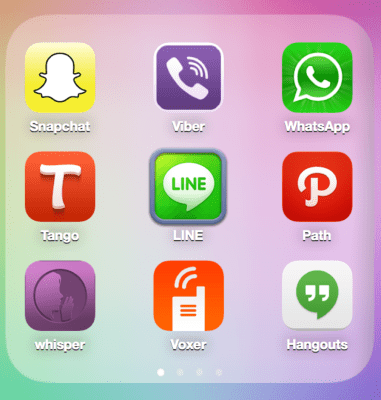Editor’s note: Anamitra Banerji is a partner at Foundation Capital where he focuses on investing in startups in the consumer and marketing technology sectors, including Kik, where he is an investor and sits on the board. He was the 30th employee and first product manager at Twitter, where he helped start Twitter Ads from scratch.
If you are anything like me, you use multiple messaging apps on a daily or weekly basis – and you use them for more than just texting. My colleagues, friends and family all prefer different apps, and I use each app in a different way. And even though some messengers are more dominant in specific geographies (e.g. Kakao in South Korea), I don’t think messaging is necessarily a winner-take-all market.
Yes, many believe that ultimately we will all latch on to one or two key messaging apps and that economies of scale will drive consolidation in this space. Facebook’s acquisition of WhatsApp is more a response to an existential threat than consolidating Facebook Messenger and WhatsApp*.
Charles Hudson, venture partner at SoftTech VC, made a compelling case for why messaging is not a winner-take-all market, and it’s worth highlighting four points.
We use a different persona on each app
In the real world we behave one way in a meeting at the office and a different way at a bar with old friends. Each of our friend groups has different interests and inside jokes, and so we approach them with tailored messages. The content we produce on each app is different. Even our personas and the content we produce in different groups within the same app is sometimes different.
But Facebook has trained us to collapse our personality into one monolithic identity. That’s only 10 percent of the real you. The majority of the real you doesn’t have an outlet. That is where messengers (and other services) come into play. That is where the content you publish in each app reflects your persona for that app – the consummate professional on iMessage with co-workers and the jokester with college friends on Facebook Messenger.
We use multiple messengers because they reflect our diverse social circles, our various personas, and the variety of content we publish.
We use each app for a different friend circle
In other words, each messaging app represents a different circle of friends. You use the app your friends use. If you are a teen, or have friends or family in school, you use Kik. To chat with family overseas, you use WhatsApp. With co-workers you use iMessage. For Facebook friends you use Facebook Messenger. For Twitter followers you use DMs. Whenever there is overlap in these circles, the person responding uses whichever app the initiator used. No big deal.
If Google Circles got one thing right, it is that our friends aren’t in some uber social network. Instead, we consciously bucket them in different mental circles, and we communicate with them in different ways.
What Google got wrong, however, is that we don’t associate all our circles with any one company, and we don’t want to work too hard in categorizing friends into circles – it’s just too much work. But if circles were pre-created for us, we’d use them. That’s exactly what my friend groups do when they display a preference for a given app or apps: The different messenger apps are essentially my Google Circles – all facilitated by different companies, all created and maintained by my friends.
Cognitive dissonance in using multiple apps is low
Each desktop social network is distinct in its user experience, and getting started takes time. But most messaging apps have a basic texting feature that looks the same regardless of the app. It’s easy to enter text, pick a friend, and hit send. It works the same in all apps, so there is no learning time, no onboarding time, no cognitive dissonance. Further, access to the phone’s address book catalyzes all of this.
Just as it’s very easy to get started with a messaging app, it’s really easy to stop using an app or switch to another one. Since user loyalty is low – as soon as you stop receiving messages from your friends, you stop using the app. That’s why messengers are enticing users with services such as voice, video, games, content, and browsing.
Communication undergoes constant change and evolution
That is because new ways for humans to communicate are always evolving and will continue to evolve until we can perfectly mimic face-to-face conversations. For all the finger tapping on all the world’s smartphones, we are barely scratching the surface when it comes to visual communication.
The innovators and entrepreneurs out there with mobile messaging on their minds should know that there is plenty of room for new and better ideas, just as there is plenty of room for new and different paths to success.
*My cousin in India is planning a trip to the Mount Everest base camp. He will start his climb from Lukla, which is one of the trickiest airports to land at, with high winds and rain, further complicated by a small runway on the edge of a cliff. On his phone, he showed me a video of what it’s like to land a plane there. He then scrolled through some of the other posts, images, videos and jokes from friends. It took me a minute or two to realize that I wasn’t browsing his Facebook news feed but rather going through his WhatsApp. For my cousin and his friends WhatsApp IS Facebook.
